-Festival-2024.jpg)
Diwali, also referred to as the Festival of Lights, is one of the most important and widely celebrated festivals in India. This energetic celebration of 5 days' festivities stands for wisdom over ignorance, Good over Evil, and Light over Darkness. Diwali is observed with great fervor all throughout the nation as Shri Ram returns to Ayodhya following 14 years of exile and triumphs over the Evil Asura King Ravana. Oil lamps, candles, and vibrant rangoli cover homes and streets; the smells of mouthwatering sweets permeate the air as fireworks blast skyward. Diwali is not just a religious festival but also a celebration of family unity, gift-giving, love and friendship rejuvenation. Diwali begins with Dhanteras and ends with Bhai Dooj Puja, in which Diwali is the special celebration of worshipping Maa Laxmi.
What is Diwali? Diwali Meaning
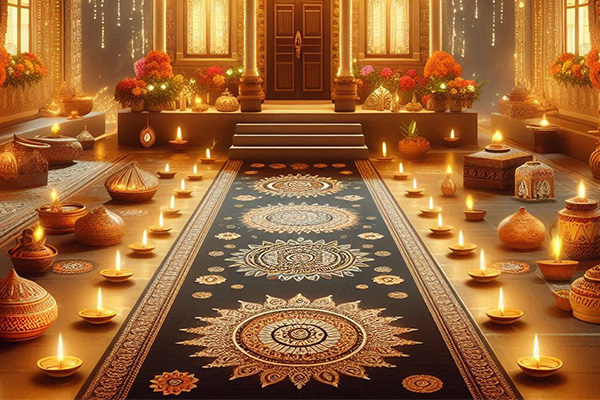
Diwali is popularly known as the festival of lights. Its name derives from the Sanskrit term Deepavali. What is Deepavali? It means ‘deep’ (lamp) and ‘vali’ (row), which literally means 'row of lights', and is famous for the glittering clay lamps in rows that are placed in front of the houses. The festival is celebrated with pyrotechnics like stunning fireworks and firecrackers and the decorating of floors with rangoli patterns, as well as other areas of the home with Jhalars. Families gather for feasts and share mithai, making food the central focus. Diwali serves as an annual homecoming and bonding occasion not just for families, but also for communities and organizations, especially those in metropolitan areas, who organize activities, events, and parties. Many places have parades and fairs with parades or music and dance performances in parks. All this happens on Diwali days, along with Diwali puja as well.
Diwali also marks the commencement of a new year in western states such as Gujarat and certain northern places in India. Rituals and preparations for Diwali begin weeks in advance, most commonly after the Dussehra festival , which occurs approximately 20 days before Diwali. Because the Hindu religious calendar is lunar, and the Gregorian calendar used by most governing administrations is solar, the festival is observed on different days each year.
When is Diwali (Deepavali) in 2026? Date, Time, Tithi & Muhurat
Lakshmi Puja on Sunday, November 8, 2026
Lakshmi Puja Muhurat - 06:27 PM to 08:27 PM
Duration - 02 Hours 00 Mins
Pradosh Kaal - 06:02 PM to 08:34 PM
Vrishabha Kaal - 06:27 PM to 08:27 PM
Amavasya Tithi Begins - 11:27 AM on Nov 08, 2026
Amavasya Tithi Ends - 12:31 PM on Nov 09, 2026
Detailed Diwali Puja Muhurat for 2026
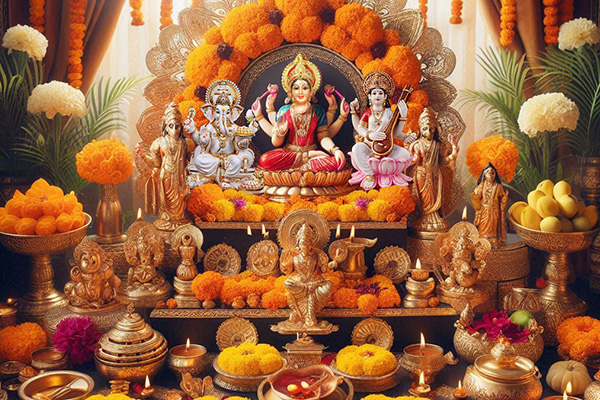
In 2026, Diwali will be celebrated on Sunday, November 8. The evening Pradosh Kaal is the most auspicious moment for performing Lakshmi Puja, the main celebration ceremony. The Pradosh Kaal Muhurat on this day is between 06:02 PM to 08:34 PM, therefore the best time to pray to Goddess Lakshmi for wealth and prosperity. The Lakshmi Puja Muhurat is from 06:27 PM to 08:27 PM, with a duration of 2 hours, considered the ideal time for the worship.
The Vrishabha Kaal (fixed Lagna) also coincides with this period, from 06:27 PM to 08:27 PM, making it even more auspicious.
The Amavasya Tithi begins at 11:27 AM on November 8, 2026, and ends at 12:31 PM on November 9, 2026.
The Diwali festival in 2026 begins with Dhanteras on November 6 and concludes with Bhai Dooj on November 11, with each day carrying its own spiritual significance and traditional observances.
Diwali Legends, Stories & Rituals. The 5 Days Festival
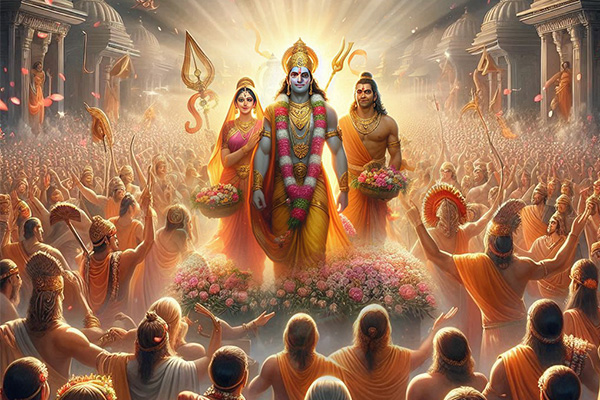
Diwali celebrates the richness of the fall harvest and is devoted to different gods and goddesses. The event also marks a significant day in the Indian calendar, as it commemorates the conclusion of Shri Ram's fourteen-year exile in the North Indian kingdom of Awadha. As the people of Ayodhya awaited the homecoming of their beloved prince, they lit hundreds of lights to lead his flying vimana to their town. The darkest night of the year also gave way to a beautiful dawn as Ram returned to his home kingdom of Awadha with his wife and brothers.
Diwali also honors the three goddesses, Lakshmi, Kali, and Saraswati, for their generosity. Dhanteras (two days before Diwali) honors Lakshmi, whose blessings are required for a successful, productive, and tranquil existence. The day before Diwali, Kali Chaudas, is devoted to Maha Kali, whose power we seek to preserve our wealth. Her blessings of physical, mental, and spiritual strength are all necessary for every one of us to have a happy life. Diwali is a festival devoted to the goddess Saraswati too. Knowledge is the greatest spiritual wealth because it cannot be taken away from you; it is also the ultimate power since it often overcomes physical force.
Dhanteras is the first day of Diwali festivities and is devoted to Goddess Lakshmi and Shri Kuber. Because both Lakshmi and Kuber represent wealth, the day is known as 'Dhanteras,' as Dhan literally translates as wealth in English. Dhanteras occurs on the 13th day of Krishna Paksha in the Hindu month of Kartika, thus the name.
According to tradition, on the day of Dhanteras, during the Samudra-Manthan (ocean churning), the goddess of riches Shri Lakshmi came from the ocean bringing a jug of gold with her, along with Shri Kuber, the deity of wealth. Worshiping both deities on this day is therefore deemed fortunate. People pray for success and riches by offering special 'Bhoga-Prashada.'
Because it is believed that Goddess Lakshmi only lives in clean areas, the homes are carefully cleaned. To greet the goddess, traditional clay lamps are lit in the evening, and the house's entryway is decorated with colourful 'Rangoli.' The tradition of purchasing metal on this day is also common and has great importance as part of the numerous rituals performed over five days. Purchasing utensils and precious metals like silver and gold is said to bring good fortune and luck, and the goddess Lakshmi bestows boons.
Dhanteras or Dhanvantari Trayodashi (November 6, 2026, Friday )
.jpg)
Dhanvantari Trayodashi, which falls on the same day as Dhanteras, is also observed. On this day, Deity Dhanvantari, the god of health and the creator of Ayurveda, is said to have risen from the ocean with the pot of Amrita, the elixir of life, during the Samdura-Manthan. According to Hindu mythology, Dhanvantari is the 12th avatar of Shri Vishnu and one of the 14 jewels that arose during the ocean churning. On the day of Dhanvantari's incarnation, people pray for good health, long life, and general well-being and adore him.
Read More: Dhanteras 2025
Narak Chaturdashi or Kali Chaudas or Choti Diwali (November 7, 2026, Saturday)
.jpg)
Narak Chaturdashi, also known as Chhoti Diwali in northern India, is celebrated as part of the Diwali celebrations. The day is named Narak Chaturdashi after the tale of Narakasura and his ultimate death at the hands of Shri Krishna. Narakasura, the demon king, ruled over the whole world, including Indra's realm of 'Swargalok.' He also took Aditi, the mother of Gods' jewels, and kidnapped 16000 girls and women. Shri Krishna murdered Narakasura, restoring Indra's rule and Aditi's honor, as freeing and marrying the kidnapped 16000 women. Thus, the day is observed to commemorate Narakasura's rescue at the hands of Shri Krishna.
In the southern states, Narak Chaturdashi is the primary Diwali celebration, symbolizing Shri Krishna's victory over Narakasura as the triumph of good over evil. People dress up in new clothing, eat traditional sweets, light candles, adorn their houses, burst crackers, and share greetings with loved ones on this day.
Narak Chaturdashi is also called Roop Chatturdashi or Kali Chaudas. Many people celebrate Roop Chaturdashi by using Ubtan (face pack) mixed with different oils, particularly sesame oil, and taking a bath before dawn to rekindle their young glow and brightness, since Roop literally translates to beauty in English. Deepdan, or lamp giving, is especially significant on this day, as individuals give 14 lights to placate the deity of death, Yamraja.
Read More: Narak Chatudashi 2025
Laxmi Pujan or Diwali (November 8, 2026, Sunday)
.jpg)
Lakshmi puja is celebrated on the fourth day of Diwali, which occurs on the new moon day of the month of Kartik. Diwali derives its meaning from the tale of Shri Ram and the evil King Ravana. The celebration represents the dispersal of internal gloom and ignorance considering knowledge and optimism. The most significant aspect of Diwali festivities is Lakshmi Puja. The day begins early, with people cleaning their homes completely and decorating them with new flowers, lights, and Rangolis to welcome Goddess Lakshmi.
The puja is traditionally done during Pradosha in Sthir Lagna, however, the appropriate Muhurat should be discussed with a Panchang or Panditji since it changes according to the region. To remove the darkness in the evening, clay lamps are lit. Thousands of Deepak lights spread the darkness during the New Moon's gloomy night.
For the puja, the whole family gathers in new and traditional clothing to summon Goddess Lakshmi with Mantras and rituals to obtain the goddess's blessings of everlasting wealth and a better life. For the occasion, special Prasadam, sweets, and traditional dishes are prepared and given to the goddess. Fireworks and cracker bursting are also popular in different areas of the nation following the puja.
On Diwali, children seek blessings from elders and pay family visits, loved ones, and friends to offer puja wishes and distribute Diwali sweets. In West Bengal, Kali Pujan is celebrated instead of Lakshmi puja. On this day, traders and businesspeople pray and update their ledgers or account books for the New Year.
Diwali began as a harvest celebration, and thus, it is also a Harvest Festival. Diwali began as harvest celebration, and thus, it is also Harvest Festival. Diwali occurs during the month of October or November, which is the harvest season for the Kharif crop in many areas of India. Farmers in rural regions pray and thank God for a good season and harvest.
Harvest festivals are the major festivities of several Indian states throughout the year. Onam is celebrated in Kerala, Lohri is celebrated in Baisakhi, and Holi, Makar Sankranti, and Rangoli Bihu are significant harvesting festivals in India. Keralites do not celebrate Diwali at all, preferring to focus on Onam as their major holiday.
Gujarati New Year, Bali Pratipada, Govardhan Puja and Suhag Padwa are also observed. Depending on the area and state, the following day after Diwali is known as Bali Pratipada, Govardhan Puja, or Suhag Padwa. Suhag Padwa and Govardhan Puja are popular in central India, while Bali Pratipada is more widespread in southern India and Maharashtra.
The mythology connected with Bali Pratipada, On Diwali the mythology connected with Bali Pratipada is based on the story of the demon yet kindhearted king Bali, commemorating Shri Vishnu's triumph over Bali and his subsequent flight to 'Patalalok,' or the nether realm. Regardless matter how nice and kind Bali was, his egotism and feeling of superiority overcame his conscience, making him arrogant. As a result, Shri Vishnu incarnated as 'Vamana,' defeating him and forcing him to live in the 'Patala.' Recognizing Bali's excellent acts, Vishnu granted him a blessing that allowed him to visit Earth once a year, and the day became known as Bali Pratipada.
Govardhan Puja (November 9, 2026, Monday)
.jpg)
Goverdhan Puja or Annakut is celebrated on the day following Diwali. Govardhan Puja is celebrated on the day following Diwali to commemorate the day when Shri Krishna rescued the people of Gokul from heavy rains by carrying Mount Govardhan on his little finger. When Krishna urged the people of Gokul to worship Govardhan hill instead of Indra in expectation of greater rains and agricultural output, the showers manifested Indra's anger.
When Krishna refused to give up even after lugging the hill for many days, Indra accepted defeat and halted the showers. Thus, the day is celebrated in various areas of the nation in honor of Govardhan hill and Shri Krishna's triumph over Indra. On this day, a tiny mound of cow dung is built and worshipped. Farmers also revere their livestock on this day and feed them a special feast.
Gujaratis celebrate New Year during the Kartik month of Pratipada or Padwa. New Year, or Bestu Varas as it is known in Gujarati, is the first day of the Gujarati calendar and is celebrated with Govardhan puja. As the Gujarati fiscal year starts on this day, business owners and merchants replace their old ledgers with new ones. The day is marked by temple visits, feasting on magnificent and traditional Gujarati dishes with family, and exchanging pleasantries with loved ones.
On this day, married ladies bathe before dawn and seek the blessings of their elders and husbands; therefore, the day is known as Suhag Padwa and is observed in certain areas of the nation, particularly in Madhya Pradesh. On this day, women also go to the Gajalakshmi temple to pray for a long and happy marriage.
Read More: Goverdhan Puja 2025
Bhai Dhooj (November 10, 2026, Tuesday)
.jpg)
Bhai Dhooj is commemorated two days after Diwali Bhai Dooj is commemorated two days after Diwali and concludes the five-day Diwali celebrations. On this day, the brothers pay a visit to their wedded sister to check on her well-being and to bring her gifts. Sisters celebrate the arrival of their brothers with a lavish feast. The ceremonies include sisters applying 'Tilak' to their brothers' foreheads and performing 'Aarti' while praying for their brothers' happiness and prosperity.
According to the mythology connected with the observance, Yama, the king of death, paid a visit to his sister Varni, who greeted him with affection and a lavish feast. When Yama asked her for a present, Varni requested that all brothers visit their sisters on this day and that sisters pray for the well-being of their brothers. Another tale speaks about Shri Krishna and his wife, Subhadra. Krishna visited his sister Subhadra after slaying the demon Narakasura, who greeted him with sweets and placed tilak on his forehead as a victory symbol.
Read More: Bhai Dhooj 2025
How To Celebrate Diwali? Diwali Pooja Vidhi: How to Perform Lakshmi Puja
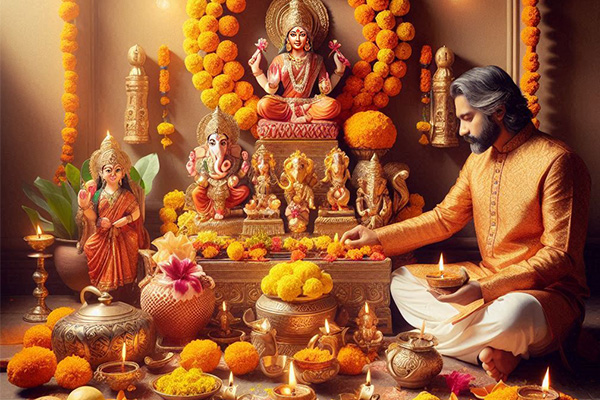
Start by cleaning your home, then decorate with rangoli, flowers, and lights.
Lighting clay lamps (diyas) and arranging them in your house on Diwali evening would help you to represent the triumph of light over darkness.
Offer flowers, sweets, and prayers for prosperity as you honor Goddess Lakshmi and Shri Ganesha at the auspicious Pradosh Kaal.
Prepare and distribute laddoos, kaju katli, and other traditional sweets to family, friends, and neighbors either made or purchased.
Celebrate by blasting firecrackers, it's advised to choose environmentally friendly options.
As a symbol of affection and goodwill, present presents to friends and relatives.
Feast with Family: Share a celebratory dinner together with sweets and unique areas.
Visit a temple if feasible to worship and take part in local events.
These steps capture the essence of Diwali, emphasizing light, prosperity, and togetherness.
Diwali Pujan is conducted at the appropriate mahurat, while considering the Pradosh time and Amavasya Tithi. A comprehensive Diwali Puja involves the following steps:
First, you must perform the Atma Shoshan, or self-purification.
Then, taking the water in your fist, you make a Sankalpa, which is a solemn promise to perform the Diwali puja rituals.
You can now recite the Shanti path mantra for peace, and prosperity in your life.
Next, the Mangal path is recited for the wish fulfilment of the family. Take a coconut tied with a red cloth and sacred thread and establish it in a copper or earthen pot for the Kalash Sthapana. This is followed by Ganpati puja to invoke the blessings of Shri Ganesha. The Nav Graha puja is conducted after this to propitiate all nine planets.
After this, the worship of Goddess Lakshmi commenced as per the Lakshmi Puja mahurat. After Lakshmi Pujan is over, the lamp is kept lit throughout the night.
People read the Lakshmi Sukta and other Stutis of Goddess Lakshmi. Some people remain awake all night to welcome Goddess Lakshmi into their house.
On the day of Diwali, try chanting more and more names. Worship Goddess Mahalakshmi and Shri Ganesha during Diwali to get their blessings. After the Puja, pay your respects to Goddess Mahalaxmi and Shri Ganesha.
After a while, take that pleasure in the form of Prasad. Aside from that, make donations to any needy person or Brahmin.
Maha Lakshmi Mantra
Om Shreem Hreem Shreem Kamale Kamalalaye Praseed Om Shreem Hreem Shreem Mahalakshmaye Namah ||
Shri Ganesha Mantra
Aum Shrim Hrim Klim Glaum Gam Ganapataye Vara Varada Sarva Janamme Vashamanaya Swaha ||
Shri Kuber Mantra
Om Yakshaya Kuberaya Vaishravanaya Dhana Dhanyadi Pataye, Dhana Dhanyadi Samruddhim Me Dehi Dapaya, Swaha ||
Puja Samagri Needed for Diwali Festival
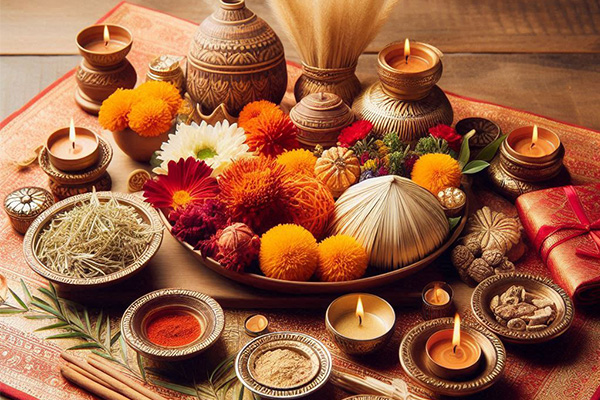
Following are the items, which are needed during five days Diwali Puja, should be collected before Diwali. This list doesn't include daily Puja items, but it lists only those items which are needed especially for Diwali Puja.
- New Murti (Idols) of Shri Ganesha and Goddess Lakshmi
- Bahi-Khata (Account Books)
- One red silk cloth for Goddess Lakshmi, One yellow cloth and Inkpot with pen
- One red cloth for God's Aasan (seating)
- Wooden stool for keeping Murti(s)
- Five big earthen Deepak (lamp)
- Small earthen Deepak (at least 25)
- One fresh earthen Kalash (pitcher)
- Flowers and at least three garlands made of fresh flowers
- Bilva-leaves and Tulsi-leaves
- Naivedhya e.g. sweets, fruits, sugarcane, Lava (parched rice)
- Sweet Paan (at least 3)
- One pen made of pomegranate or Bilva branch
- Duba (दूब) - Durva grass
- Pancha Pallav (पञ्च पल्लव) - twigs of following five trees
- Mango
- Palash
- Banyan
- Peepal
- Bakul (बकुल)
- Sarvoshadhi (सर्वौषधि) – ten following herbs
- Mura (मुरा)
- Jatamasi (जटामासी)
- Bach (बच)
- Kushtha (कुष्ठ)
- Shaileya (शैलेय)
- Haradi (हरदी)
- Daru-Haradi (दारु-हरदी)
- Soonthi (सूंठी)
- Champak (चम्पक)
- Musta (मुस्ता)
- Sapt-Mritika (सप्त-मृत्तिका)- mud collected from 7 places
- Horse Stable
- Elephant Stable
- Cow Shelter
- Ant Heap
- River confluence
- Lowland
- Royal Palace
If some of the items are not available, then Akshata can be used in place of missing item as a remedy.
Diwali Vrat Katha & Vidhi
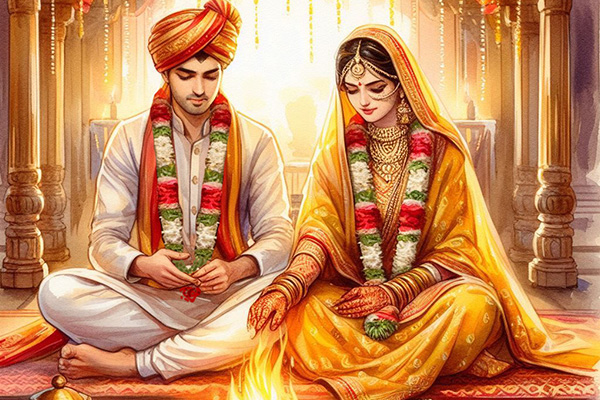
This Katha is very important, and people read this Diwali Katha on Diwali day.
Take some flowers and rice grains or Akshat in hand after the worship, listen to the following story and sprinkle the flowers and rice on the statue of Lakshmi-Ganesha.
Once upon a time seven brothers were living in a village. All these seven brothers were living in poverty. One day the youngest son gets married to a nice girl and he took his wife to his home. After some time, the festival of Diwali was about to come. The youngest daughter in-law called up all the brothers and told them all that from now onward she is there to manage their household work but all of them should have gone out for work and get at least one thing, whatsoever they will get outside.
By listening this they all went out for work and that Sister-in-law started cleaning the house. At evening all brothers came back and get something with them. One brother gets the cow’s dung and sister-in-law asked him to keep it in a courtyard. The second brother gets a dead snack. My sister-in-law asked him to keep it on the roof and the other brothers got some milk, vegetables, broom, paddy grains and wheat grains. The sister-in-law cooked for them and served dinner to them.
Next day, there was a public proclamation by beat of the drum, that one eagle picked up Queen’s nine lacks necklace when she was bathing in a river so who so ever will find out the Queen’s necklace will get reward from the King of the state. At the same time the eagle who picked up the Queen’s necklace was flying above the brothers’ house, dropped necklace on their roof by seeing the dead snake, picked up the dead snake and flew off.
All the brothers were happy, and they said they would go to return the Queen’s necklace, but sister-in-law said that only she would go to return the Queen’s necklace. All brothers agreed on it. When Sister-in-law went to the palace to return the necklace, King was very happy and he said to her, “I’m very happy with you and now tell me, what would you like to get in return?” Sister-in-law replied, “I wish that on the day of Diwali whole city should be in dark and should not light a single lamp except in my home.” The King granted her wish and on the day of Diwali, the Sister-in-law cleaned the whole house except one room and made her brothers-in-law clean.
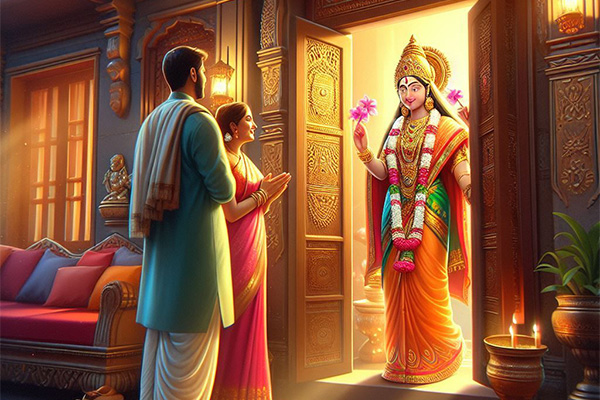
At night Lakshmi ji came to the city, whole city was in dark, and she was looking for the little light; she found light on that Sister-in-law's home and went there. Her door was closed so Lakshmi ji knocked her door, sister-in-law asked from inside, “who is on the door?” Lakshmi ji replied, 'it is me Lakshmi, please let me come into your home, whole city is in dark, and I very scared of dark.” Sister-in-law said, “No, I’ll not open my home for you, you are not staying at one place, today you are coming to my home and there is no guarantee that tomorrow you will be staying at my home.” Lakshmi ji was very scared, and she promised her that she would never go away from her home and would stay there forever.
When Lakshmi ji promised to stay at her place, Sister-in-law opened the door for Lakshmi ji, she offered the best place of home to her with full of lights and worshiped her devotedly. After worshiping the Goddess Lakshmi. Thereafter Sister-in-law went to the dark room of the house and started beating Daridra/Narak and kicked him out of the house; she also warned him to never return to her house.
So as Sister-in-law filled her home with prosperity, Goddess Lakshmi makes every person happy and every home prosperous.
Diwali Story and Origin
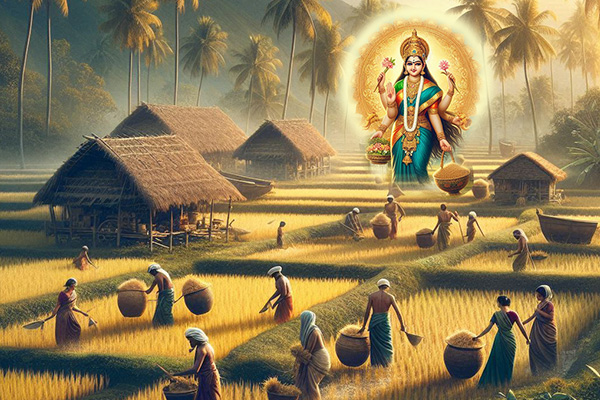
Diwali originated as a harvest celebration to commemorate the final harvest before winter. As they closed their accounting books and hoped for prosperity in the new fiscal year, individuals in India sought the heavenly blessings of Lakshmi, the goddess of wealth. Today, companies across the Indian subcontinent continue to observe the fourth day of Diwali as the first day of the new fiscal year.
The ancient Indian festival of Diwali, which is celebrated with dazzling lights and a holy significance, is an essential element of Indian civilization, and its history is intricately interwoven with the beginnings and development of Hindu religion. The traces and references to the history of Diwali may be found in a variety of intriguing and fascinating tales of Hindu mythology, which are supported by many ancient holy texts, such as the Puranas, that tell the narrative of the festival.
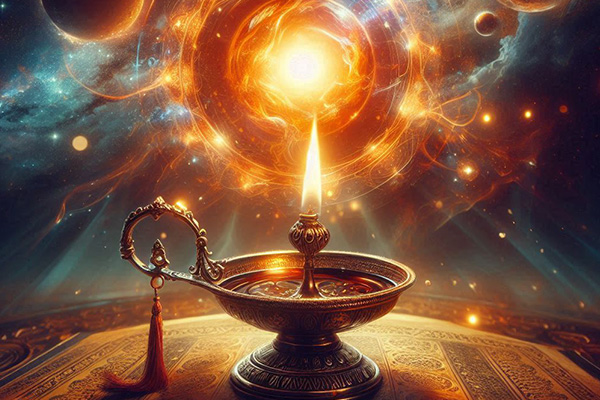
Some of the earliest Sanskrit texts on the subject date from about 500 BCE, such as the Padma Purana and the Skanda Purana. The latter mentions Diyas (lamps) as representing components of the sun, portraying it as the cosmic source of light and energy to all life, which periodically changes in the Hindu month of Kartik.
Sanskrit inscriptions in stone and copper referencing Diwali, often with words like Dipotsava, Dipavali, Divali, have been found at several locations throughout India. A 10th century Rashtrakuta empire copper bowl inscription of Krsna III that references to Dipotsava and a 12th-century Sanskrit-Kannada Sinda inscription found at the Isvara temple of Dharwad in Karnataka that refers to the festival as a 'holy event' are two examples.
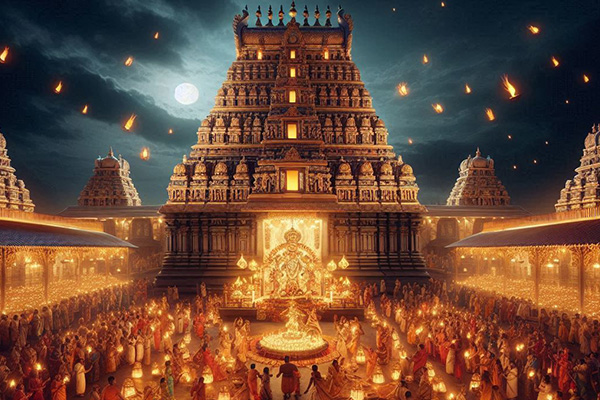
In the Ranganatha temple Sanskrit inscription of the 13th century Kerala Hindu monarch Ravivarman SamgRamdhira, this event is called Dipotsavam. 'The auspicious festival of lights which disperses the most profound darkness, which in former days was celebrated by the kings”.
Significance of Diwali; Diwali Meaning: Symbolism of Light Over Darkness
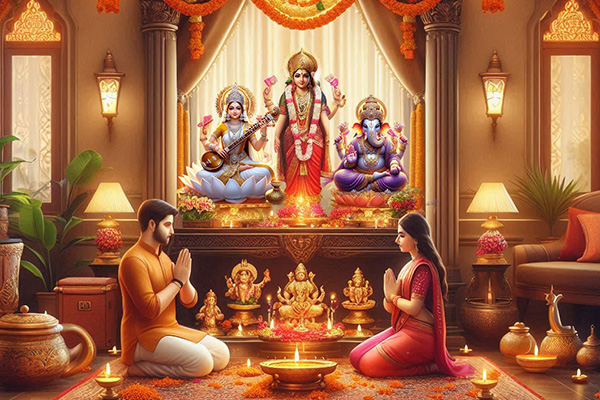
Beyond its cultural and celebrational aspects, Diwali is symbolic of light over darkness and has great spiritual resonance. Spiritually, the celebration marks the inner trip of conquering ignorance, fear, and negativity under the direction of knowledge, love, and truth. Lighting diyas is more than simply a custom; it's a means of waking the inner light of the soul, therefore negating the darkness of ego, wrath, and material wants. Not just in worldly terms but also in the sense of spiritual richness—peace, satisfaction, and the light of pure consciousness—Diwali is also linked with the goddess Lakshmi, the bringer of fortune and success. This celebration reminds people to shine their inner world with good values and heavenly knowledge, therefore strengthening their relationship with the higher self and the divine. Diwali is essentially a celebration of the soul's victory over the challenges that impede spiritual development, therefore motivating people to brilliantly show their inner light wherever they live.
Diwali as a festival has huge significance, its element has its own relevance some of them are listed below:
Diwali Lights: The lights of Diwali also represent the spread of knowledge.
Diwali Puja: When the actual knowledge (wisdom) dawns, it causes us to rejoice, and in our joy, we may lose concentration or awareness. The ancient rishis were aware of this, therefore, to preserve awareness in the middle of the revelry, they added sanctity and puja to every festival, being Diwali puja, the biggest of the year by the number of followers and, consequently, a truly great collective call to the Gods happens every year on Diwali.
Diwali Firecrackers: When there is an explosion on the outside, there is an explosion on the inside that kills our inner demons too and keeps evil forces at bay. This is the significance of the popular use of firecrackers mainly among the youth on Diwali. They bring clarity of mind and light our soul with joy, enlightening our path.
Diwali Sweets are distributed, and gifts are exchanged. Sweets help to alleviate any bitterness and are indicative of rekindled friendships and relationships.
Products associated with Diwali
7 Mukhi Rudraksha
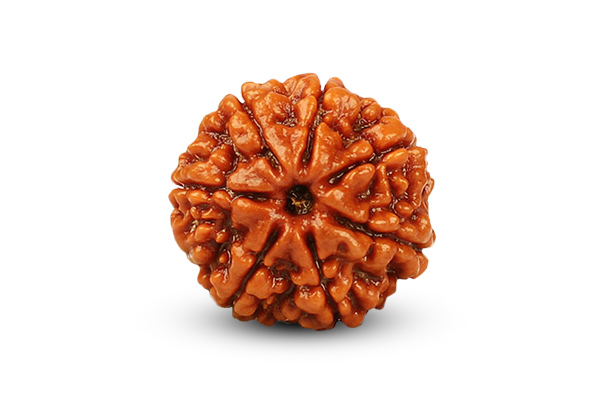
Bring wealth, prosperity, new opportunities, and abundance with the 7 Mukhi Rudraksha that has the blessings of Maa Laxmi on the festival of light Diwali.
8 Mukhi Rudraksha
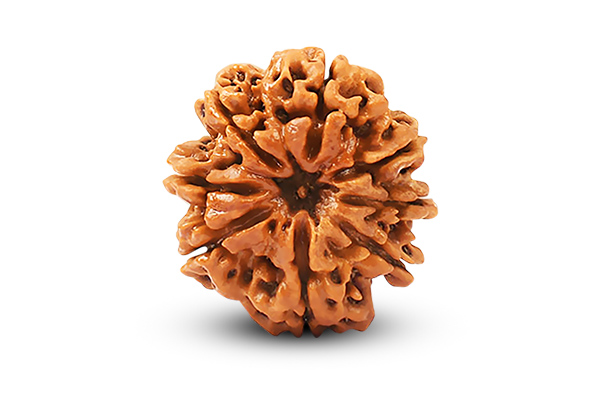
The 8 Mukhi Rudraksha is one of the most popular and sought after rudraksha bead as it symbolizes Lord Ganesha, the beloved God of wisdom and auspicious beginnings. Worship Ganesha wearing 8 Mukhi Rudraksha on the divine festival of Diwali.
21 Mukhi Rudraksha
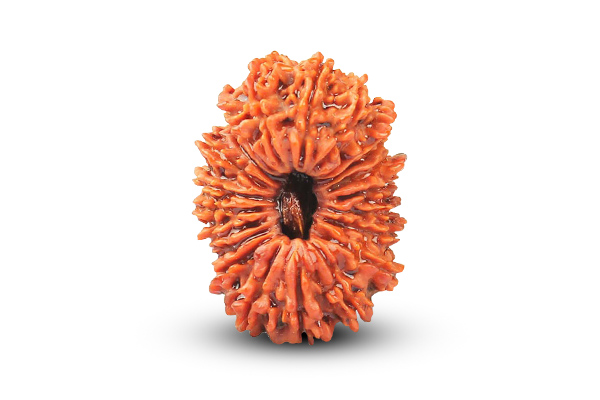
The rarest of the rare rudraksha bead is governed by Lord Kuber and is the best bead you can find for attaining wealth. The wearer of this mystical bead never lacks anything in life. This rudraksha makes a poor person rich. Bring richness, wealth and prosperity on Diwali.
Diamond Stone

Diamond stone permits the soul light to radiate. It promotes spiritual development and reminds you of your soul's desires. Let the light of your soul radiate bright on this Diwali.
Maha Laxmi Yantra
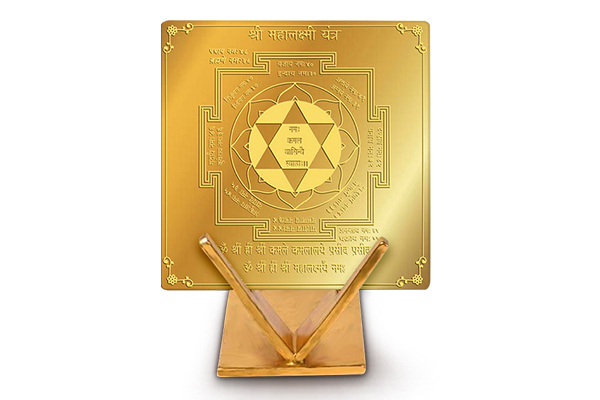
The Maha Lakshmi yantra satisfies all genuine desires, and the devotee never lacks money or material comforts; his home and treasury are always full, and he and his family enjoy an uninterrupted flow of prosperity and contentment. Buy Lakshmi Yantra this Diwali for material manifestation and an indispensable symbol for elevating spiritual bliss.
Kuber Yantra
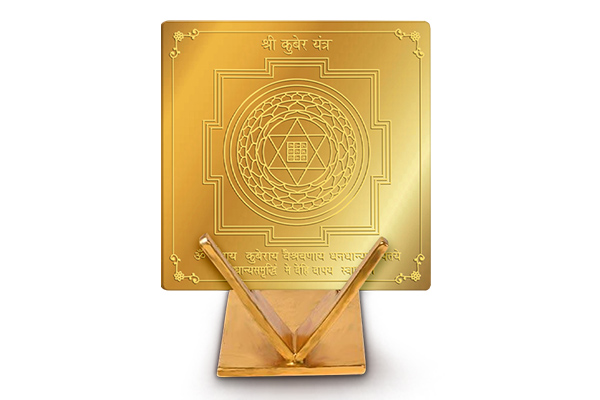
Bhagawan Kubera is pleased by the placement and worship of a Kuber Yantra, and he bestows upon you all His blessings in the form of extraordinary gains of money, wealth, and riches from expected and even unexpected sources. Having Kuber Yantra on Diwali is also believed to protect against all misfortune and bad fortune.
Shree Yantra
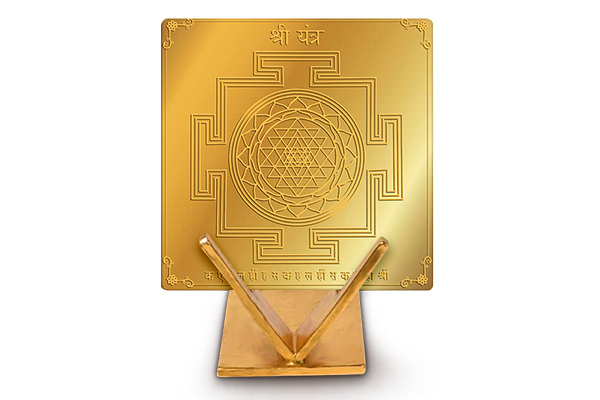
The Shree Yantra is the source of supreme energy, a Divine powerhouse of energy and magnetic powers. The energy emanated by the Shree Yantra on the divine puja of Diwali effectively destroys all negative and unwanted energies present within the place where it is installed and replaces it with positive vibrations.
Lord Kuber Puja
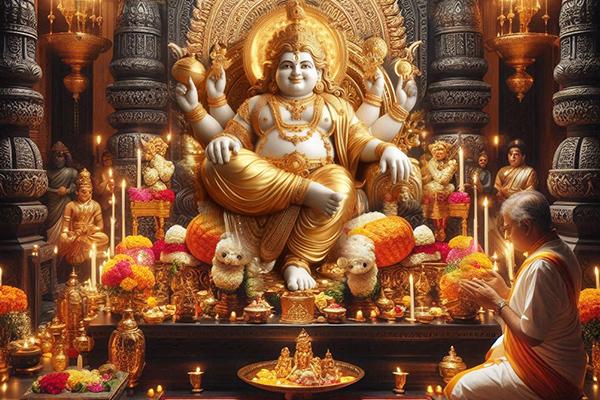
Lord Kuber Pujas for blessings of wealth, prosperity, riches and materialistic comforts. Lord Kuber is the Lord of wealth and riches; He is the keeper and distributor of Maa Laxmi’s wealth.
Laxmi Ganesh Saraswati Pujas
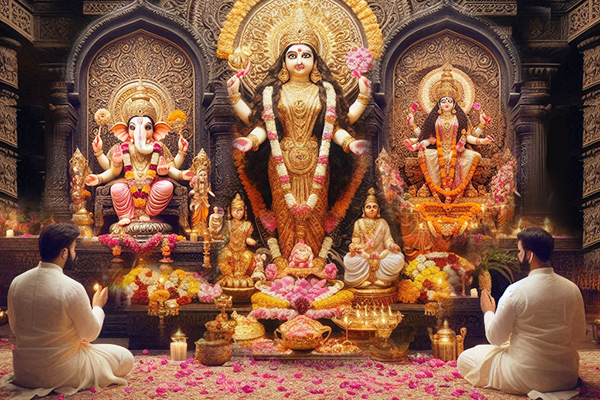
Buy Laxmi Ganesha Saraswati Pujas
Pujas dedicated to Maa Laxmi, Lord Ganesh and Maa Saraswati; together they bless a devotee with overall success and prosperity. Maa Laxmi is the Goddess of wealth and prosperity; Lord Ganesha is the one who removes all obstacles and blesses one with wisdom and intellect and Maa Saraswati is the Goddess of knowledge. Receive the powers and divine grace of Laxmi, Ganesha, & Saraswati on the auspicious festival of Diwali.
Diwali Katha
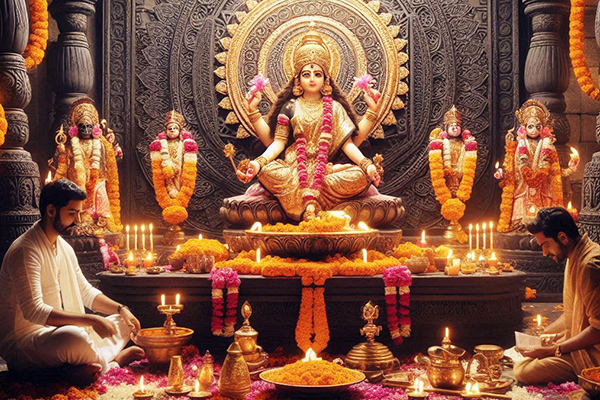
Listen to the divine tale of Shri Ram’s victory over the evil king Ravan and returning back to Ayodhya with Maa Sita, killing of Narkasura, birth of Maa Laxmi during Samudra Manthan, and many more during the Diwali Puja.

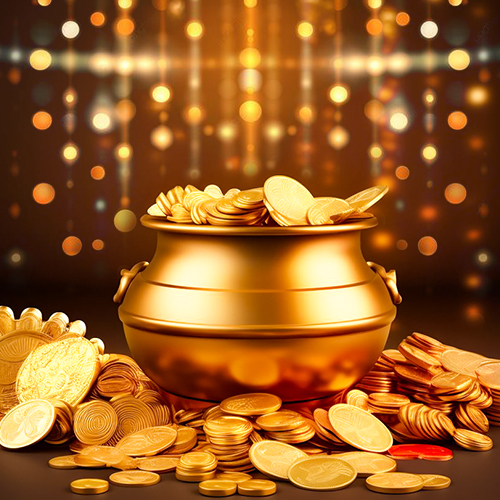
-in-Astrology.jpg)
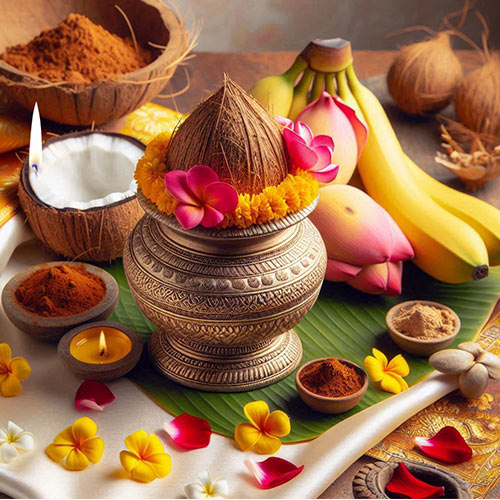
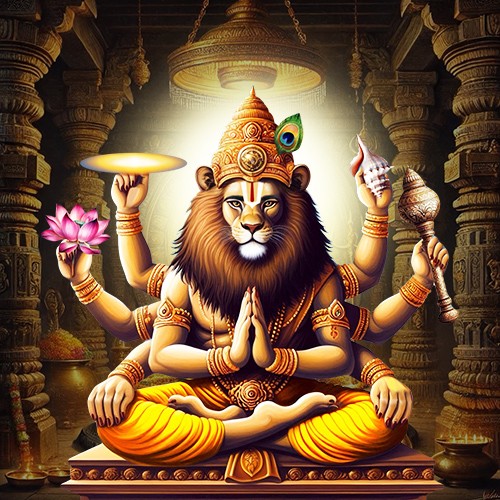
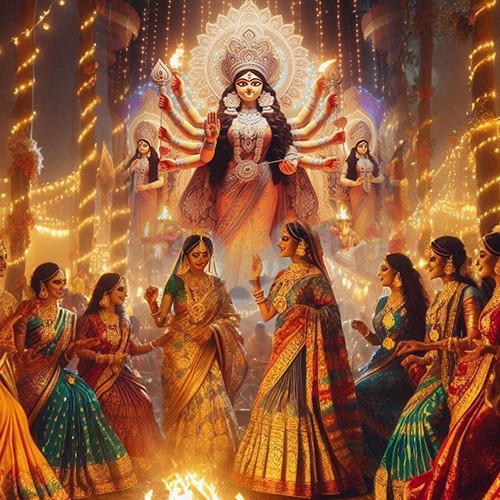
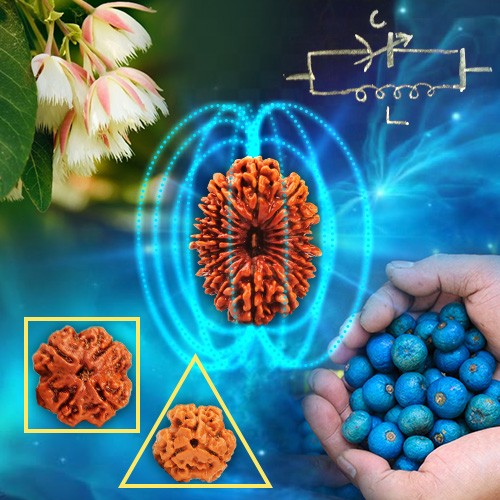

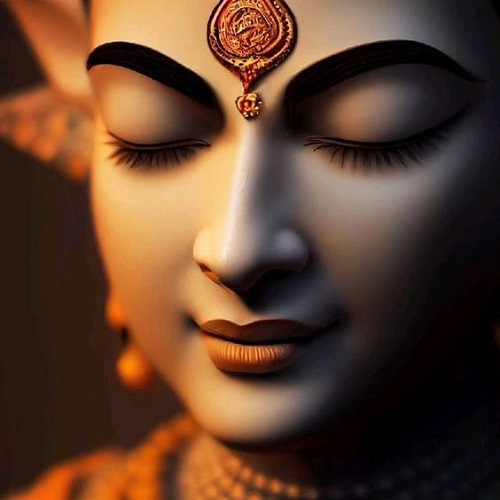
.jpg)
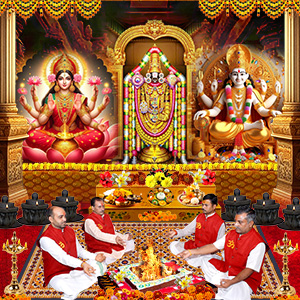
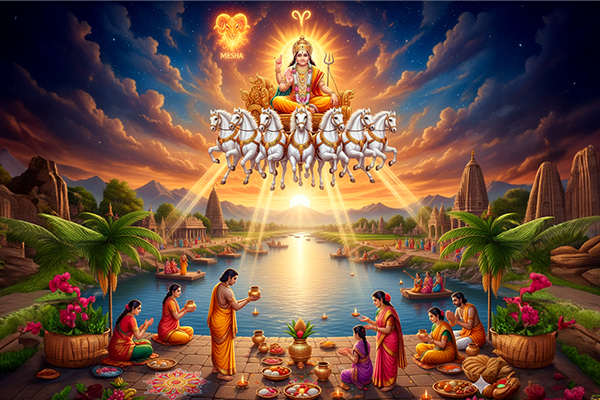
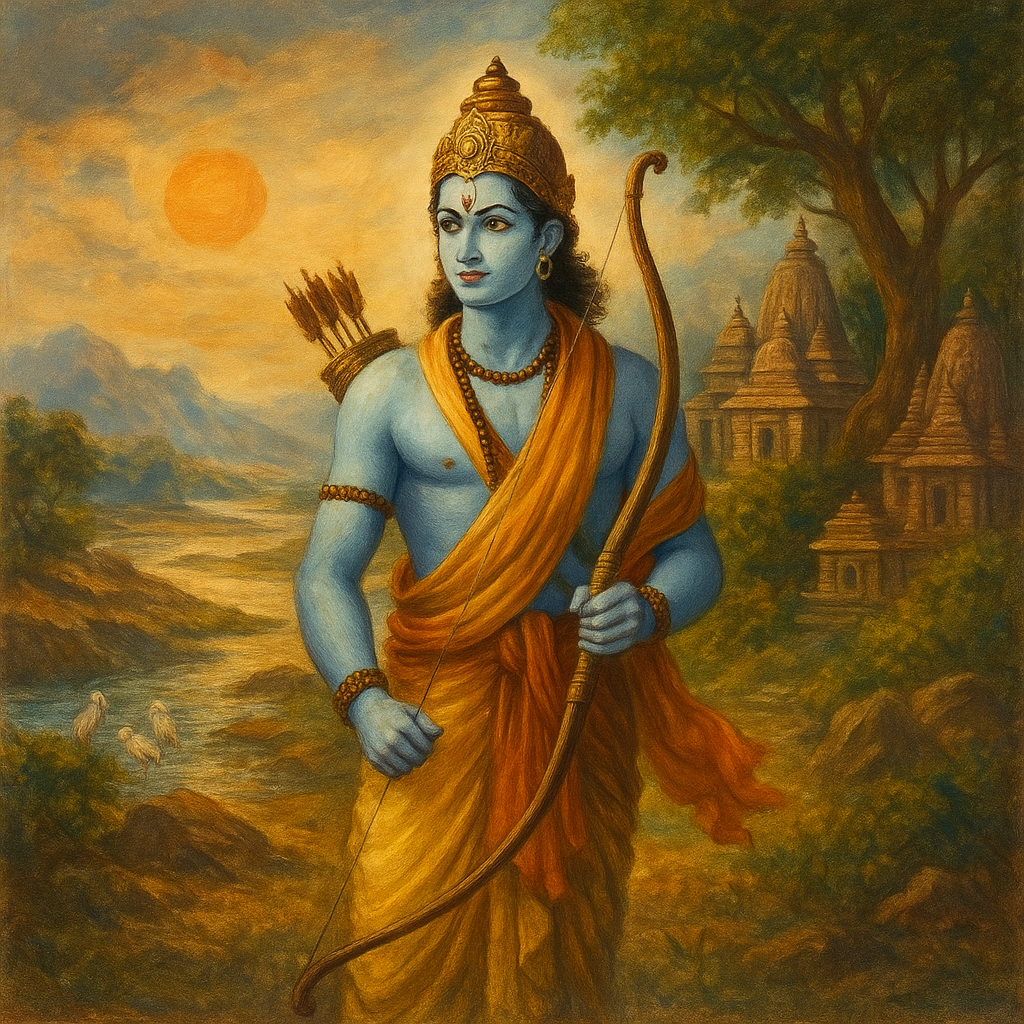
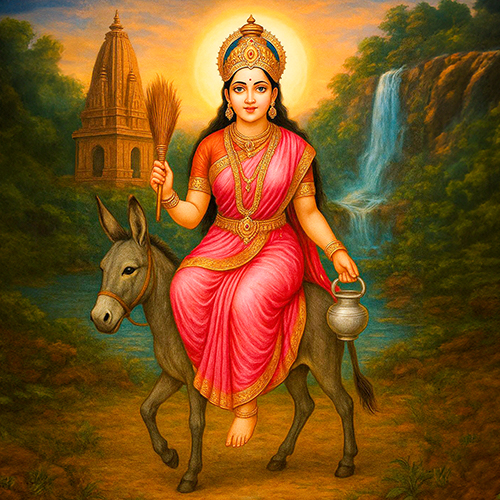
fnfOzvSR
|October 15, 2024
1